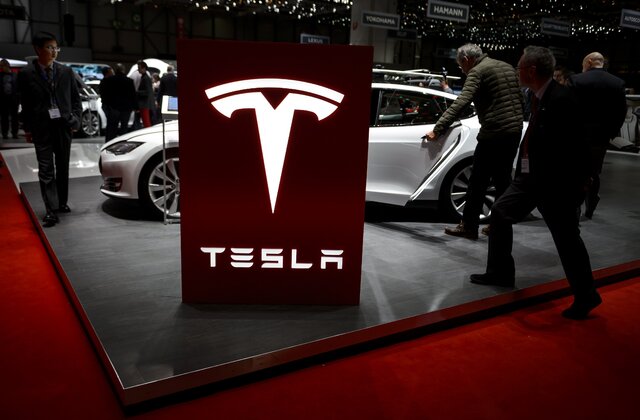In a recent earnings call, Tesla Inc. (NASDAQ:TSLA) CEO Elon Musk underscored the company’s advancements in artificial intelligence (AI) and energy storage, while also expressing caution about future growth challenges. The company’s energy division is becoming its highest margin business with 4 gigawatt hours of storage products deployed in Q3. Musk also highlighted Tesla’s progress in self-driving technology, with vehicles having driven over 0.5 billion miles using the Full Self-Driving (FSD) beta.
Key takeaways from the call include:
- Tesla’s vehicles have driven over 0.5 billion miles using the FSD beta, and a 10,000 GPU cluster for training FSD has been completed.
- The energy division, with 4 gigawatt hours of storage products deployed in Q3, is becoming Tesla’s highest margin business.
- Tesla’s Q3 operational and financial performance was impacted by planned factory upgrades, but a record quarter of profitability in the energy business was achieved.
- Significant progress has been made in 4680 cell production, and infrastructure and factory design work for Gigafactory Mexico is underway.
- Musk expressed concerns about high interest rates affecting car affordability and the importance of making Tesla cars affordable for the average person.
Musk also touched on the challenges of achieving volume production and positive cash flow with the Cybertruck, stating it will take around a year to 18 months to become a significant cash flow contributor. The company is focusing on reducing costs, maximizing delivery volumes, and investing in AI and next-generation platforms.
CFO Vaibhav Taneja mentioned that Tesla’s Q3 operational and financial performance was impacted by planned factory upgrades. However, despite these challenges, the company achieved another record quarter of profitability in the energy business. Taneja also highlighted progress in 4680 cell production and infrastructure and factory design work for Gigafactory Mexico.
Musk expressed concerns about high interest rates impacting car affordability and stressed the importance of making Tesla cars affordable for the average person. While the executives did not provide specific timelines for Model 3 Highlander availability or future growth rates, Musk stated that a compound growth rate of 50% cannot be sustained indefinitely.
Musk also expressed excitement about Tesla’s progress in autonomy and the potential of humanoid robots in the future. He emphasized the importance of localized control to ensure the safety of humans in a future with humanoid robots. The company is also considering different tiers of the FSD service to increase adoption, highlighting the economic benefits of autonomous vehicles and the potential for increased usage and value.
In the context of the upcoming Tesla pickup truck, Musk stated that it is designed for utility rather than aesthetic appeal. He also acknowledged the challenges of accessing government incentives for electric vehicles for the average consumer, and the impact of factory idle time on gross margins. The company representatives also discussed ongoing efforts to reduce costs and improve product margins.
Musk underscored the importance of reducing costs to make Tesla cars more affordable, mentioning that interest rates raise the cost of cars and that monthly payments are crucial in determining affordability. He discussed the challenges of obtaining credit and the impact of the reduction in available banks. In terms of cost reduction, Tesla aims to improve efficiency in various areas, including engineering, supply chain, logistics, and operations. Musk compared the cost reduction process to a “game of pennies.”
Musk also expressed caution about moving too quickly into uncertain times, considering global conflicts and potential economic storms. He acknowledged that the auto industry is cyclical and may face difficulties during tough economic times, and that wars and global uncertainties can impact consumer sentiment and reduce the priority of buying new cars.



